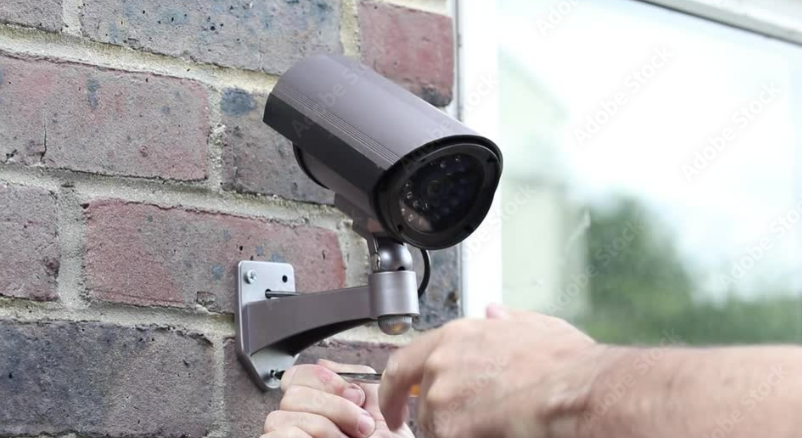When thinking about enhancing the safety of your home or business, investing in a reliable surveillance system is a key step. Choosing the right system requires careful planning, and understanding the costs involved is crucial. For residents and businesses in New Jersey, opting for professional Security Camera Installation in NJ ensures proper setup and optimal performance. However, before making this investment, it is essential to consider the various factors that can affect the total cost.
Type of Surveillance System
The type of surveillance system you choose will significantly impact the overall expense. There are primarily two categories: analog and digital (IP) systems. Analog cameras are typically less expensive but offer lower resolution and fewer features. Digital IP cameras, on the other hand, provide high-definition video, remote access, and advanced analytics, but they come with a higher price tag. Deciding between these types depends on your budget and the level of security you require.
Number of Cameras Needed
The total number of cameras needed is another major factor influencing cost. A small home may require only a few cameras, while larger properties, commercial buildings, or facilities with multiple entry points will need more extensive coverage. Each additional camera adds to the equipment cost, wiring or wireless setup, and potentially installation labor. Planning your layout carefully ensures you get adequate coverage without overspending.
Camera Features and Specifications
Modern security cameras come with a variety of features, each affecting the cost. High-resolution cameras provide clearer images, which is especially important for identifying faces or license plates. Night vision, motion detection, pan-tilt-zoom (PTZ) functionality, weatherproofing, and two-way audio are features that can enhance security but may increase the price. It is important to balance the features you need against your budget to ensure value for money.
Wired vs. Wireless Systems
Deciding between wired and wireless systems also impacts cost. Wired systems typically provide more stable connections and are less prone to interference, but installation can be labor-intensive and more expensive due to the need for cabling. Wireless systems offer easier installation and flexibility in camera placement but may require network upgrades or additional devices to ensure reliable performance. Understanding these trade-offs helps in estimating installation costs more accurately.
Installation Complexity
The complexity of installation is a significant factor in the overall price. Installing cameras in difficult-to-reach areas, across multiple floors, or in large commercial spaces may require specialized equipment, additional labor, and longer installation time. Professional installation by experienced technicians in New Jersey ensures that your system is set up correctly, reducing the risk of blind spots or technical issues, but it will add to the upfront cost.
Storage Solutions and Monitoring
Surveillance systems require storage for recorded footage. The choice between local storage (DVR/NVR) and cloud-based storage can affect long-term costs. Local storage may involve purchasing larger hard drives, while cloud storage usually comes with monthly or yearly subscription fees. Additionally, if you want professional monitoring services, this adds another recurring cost. Evaluating your storage needs and monitoring preferences can prevent unexpected expenses later.
Maintenance and Upgrades
Ongoing maintenance and occasional upgrades are often overlooked but are essential for keeping your surveillance system effective. Cameras and equipment may need periodic cleaning, software updates, or replacement over time. Factoring in these costs ensures your system remains functional and reliable in the long term, avoiding the need for costly emergency repairs.
Permits and Legal Considerations
In New Jersey, certain surveillance installations, particularly in commercial areas or public-facing spaces, may require permits or compliance with state laws regarding video surveillance. Consulting with a professional Security Camera Installation in NJ service can help you navigate legal requirements, ensuring your system is compliant. Non-compliance can result in fines or legal issues, which can add to the total cost unexpectedly.
Energy and Operational Costs
While security cameras are generally energy-efficient, a large system with multiple high-definition cameras, continuous recording, and cloud storage can increase electricity consumption and internet bandwidth usage. Considering these operational costs as part of your budgeting helps avoid surprises in utility bills.
Budgeting for Long-Term Value
Ultimately, investing in a surveillance system should be viewed as a long-term investment in safety and security. While initial costs may seem high, choosing quality equipment, professional installation, and proper maintenance can reduce the risk of theft, vandalism, or liability issues, offering peace of mind. By understanding all the factors that influence costs—from equipment type and features to installation complexity and ongoing maintenance—you can make an informed decision that meets both your security needs and budget.
Conclusion
Installing a surveillance system in New Jersey is more than just buying cameras; it involves careful planning, budgeting, and professional support. From selecting the right camera type and number to understanding installation, storage, and maintenance costs, every decision affects your overall investment. By consulting experienced providers for Security Camera Installation in NJ and considering all associated cost factors, you can ensure your property is well-protected while getting the best value for your money.



